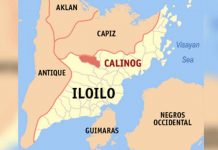ILOILO City – Now on Code Red Sublevel 1 Alert, the Department of Health (DOH) is intensifying its tracking of severe acute respiratory infection cases in Western Visayas.
Once tracked, the patients would be tested for the coronavirus disease 2019 (COVID-19), according to Dr. Glenn Alonsabe, DOH Region 6 epidemiologist.
DOH on Saturday raised the Code Red Sublevel 1 Alert following its confirmation of the first case of local COVID-19 transmission in Metro Manila. The patient was a 59-year-old woman, the wife of the 62-year-old man who first tested positive for COVID-19.
More local transmissions were recorded since Saturday. Yesterday, DOH said the number rose to 20 already.
Code Red, Sublevel 1 is a preemptive call to ensure national and local government and public and private healthcare providers can prepare for possible increase in suspected and confirmed cases. It means all hospital personnel are required to report for duty in their respective facilities to provide medical services.
Alonsabe stressed Western Visayas remained free from COVID-19 and the tracking of severe acute respiratory infection cases was not new; it was done, too, when the country faced with the threat of Severe Acute Respiratory Syndrome (SARS) in 2003. That time, he said, cases of severe acute respiratory infection were traced to DOH’s sentinel hospitals.
“This kind of patients mostly needed further management of their respiratory problems,” said Alonsabe.
According to the World Health Organization (WHO), the most common symptoms of COVID-19 are fever, tiredness and dry cough.
Some patients may have aches and pains, nasal congestion, runny nose, sore throat or diarrhea.
These symptoms are usually mild and begin gradually. Some people become infected but don’t develop any symptoms and don’t feel unwell. Most people (about 80 percnt) recover from the disease without needing special treatment.
Around one out of every six people who gets COVID-19 becomes seriously ill and develops difficulty breathing, according to WHO.
Older people, and those with underlying medical problems like high blood pressure, heart problems or diabetes, are more likely to develop serious illness. People with fever, cough and difficulty breathing should seek medical attention, stressed WHO.
DOH-6 Infection Disease Unit head Dr. Mary Jane Roches Juanico said tracking severe acute respiratory infection cases in Western Visayas would start in 15 to 17 medical facilities, mostly provincial hospitals and some private hospitals classified as level 2 and level 3.
“Our level 2 and level 3 hospitals are departmentalized. They have the capability to really provide isolation areas and even intensive care,” said Juanico.
PROTECTION MEASURES FOR EVERYONE
Stay aware of the latest information on the COVID-19 outbreak, available on the WHO website and through national and local public health authority.
Many countries around the world have seen cases of COVID-19 and several have seen outbreaks. Authorities in China and some other countries have succeeded in slowing or stopping their outbreaks. However, the situation is unpredictable so check regularly for the latest news.
According to WHO, you can reduce your chances of being infected or spreading COVID-19 by taking some simple precautions:
*
Regularly and thoroughly clean your hands with an alcohol-based hand rub or
wash them with soap and water.
Why? Washing your hands with soap and water or using alcohol-based hand rub
kills viruses that may be on your hands.
*
Maintain at least one meter (three feet) distance between yourself and anyone who
is coughing or sneezing.
Why? When someone coughs or sneezes they spray small liquid droplets from their
nose or mouth which may contain virus. If you are too close, you can breathe in
the droplets, including the COVID-19 virus if the person coughing has the
disease.
*
Avoid touching eyes, nose and mouth.
Why? Hands touch many surfaces and can pick up viruses. Once contaminated,
hands can transfer the virus to your eyes, nose or mouth. From there, the virus
can enter your body and can make you sick.
*
Make sure you, and the people around you, follow good respiratory hygiene. This
means covering your mouth and nose with your bent elbow or tissue when you
cough or sneeze. Then dispose of the used tissue immediately.
Why? Droplets spread virus. By following good respiratory hygiene you protect
the people around you from viruses such as cold, flu and COVID-19.
*
Stay home if you feel unwell. If you have a fever, cough and difficulty
breathing, seek medical attention and call in advance. Follow the directions of
your local health authority.
Why? National and local authorities will have the most up to date information
on the situation in your area. Calling in advance will allow your health care
provider to quickly direct you to the right health facility. This will also
protect you and help prevent spread of viruses and other infections.
*
Keep up to date on the latest COVID-19 hotspots (cities or local areas where
COVID-19 is spreading widely). If possible, avoid traveling to places –
especially if you are an older person or have diabetes, heart or lung disease.
Why? You have a higher chance of catching COVID-19 in one of these areas./PN



